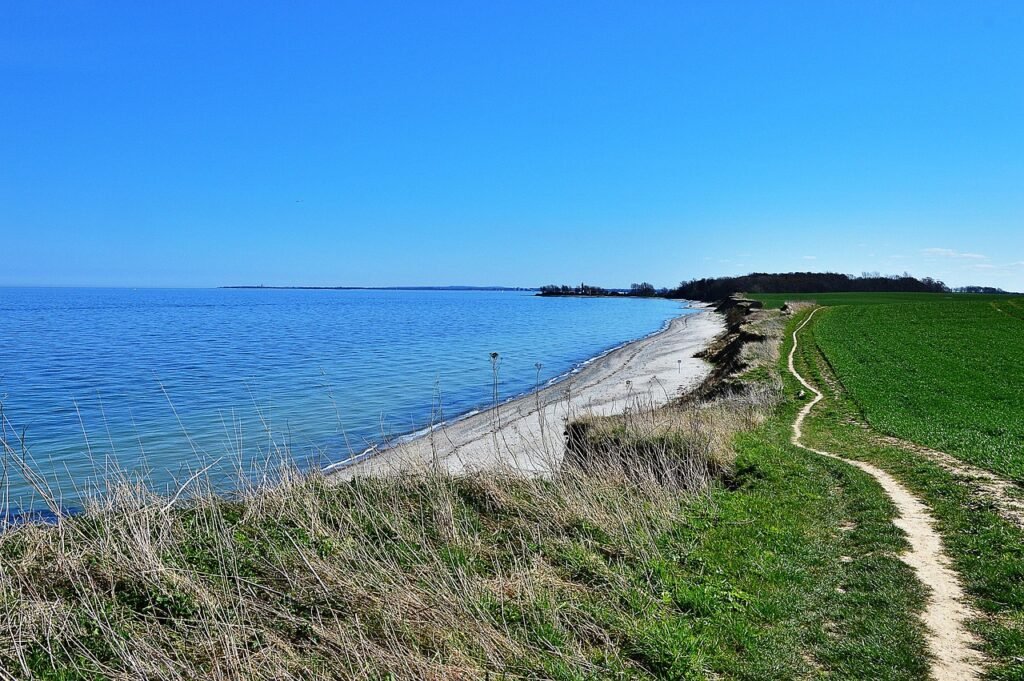Sun, sand, and the soothing sound of waves crashing – is there anything more universally appealing than a trip to the beach? Whether you’re seeking adventure, relaxation, or quality time with loved ones, the beach offers something for everyone. But with so many beaches around the globe, how do you choose the perfect one for your next getaway? This guide will delve into everything you need to know about beaches, from their diverse ecosystems and activities to tips for responsible beach tourism.
The Allure of the Beach
Psychological Benefits of Beach Time
The beach isn’t just a pretty picture; it’s a mood booster! Studies have shown that spending time by the ocean can have significant psychological benefits.
- Stress Reduction: The sound of waves and the vastness of the ocean can promote relaxation and reduce stress levels.
- Improved Mood: Exposure to sunlight helps the body produce Vitamin D, which is linked to improved mood and reduced symptoms of depression.
- Mindfulness: The sensory experience of the beach – the smell of salt air, the feel of sand between your toes – encourages mindfulness and a sense of presence.
- Creativity Boost: Stepping away from the routine and immersing yourself in nature can spark creativity and fresh perspectives.
Economic Importance of Beaches
Beaches contribute significantly to local and national economies. Coastal tourism generates billions of dollars annually, supporting businesses, creating jobs, and driving economic growth.
- Tourism Revenue: Coastal destinations attract tourists from all over the world, contributing significantly to local economies through accommodation, dining, and recreational activities. For example, Florida’s beaches generate billions of dollars in tourism revenue each year.
- Property Values: Proximity to the beach often increases property values, benefiting homeowners and boosting local tax revenues.
- Job Creation: The tourism industry associated with beaches provides employment opportunities in various sectors, including hospitality, transportation, and entertainment.
- Recreation Industry: Beaches support a thriving recreation industry, with businesses offering water sports, boat tours, and other activities.
Exploring Diverse Beach Ecosystems
Sandy Beaches
Sandy beaches are perhaps the most iconic type, characterized by their soft, granular sand and gentle waves.
- Formation: Formed by the accumulation of sand particles, typically quartz, but can also be made of coral, shell fragments, or volcanic rock.
- Common Inhabitants: Sandy beaches are home to a variety of creatures, including sand crabs, shorebirds, and various types of shellfish.
- Example: Waikiki Beach in Hawaii is a classic example of a popular sandy beach.
Rocky Beaches
Rocky beaches, characterized by their dramatic cliffs, tide pools, and rugged terrain, offer a different kind of coastal experience.
- Unique Features: These beaches feature tide pools teeming with marine life, offering opportunities for exploration and discovery.
- Popular Activities: Rock climbing, tide pooling, and bird watching are popular activities on rocky beaches.
- Example: The rugged coastline of Big Sur in California offers stunning examples of rocky beaches.
Shell Beaches
Shell beaches are unique and often stunning, formed by an abundance of seashells.
- Formation: Created by the accumulation of shells over time, resulting in beaches composed almost entirely of shells.
- Unique Beauty: The vibrant colors and textures of the shells create a visually stunning landscape.
- Example: Shell Beach in Shark Bay, Western Australia, is made entirely of tiny white shells.
Black Sand Beaches
Black sand beaches are a striking contrast to the typical white or golden sand, formed by volcanic activity.
- Volcanic Origin: The black sand is created from eroded volcanic rock, such as basalt.
- Dramatic Landscapes: Black sand beaches often feature dramatic landscapes and stunning coastal views.
- Example: Punalu’u Black Sand Beach in Hawaii is a well-known example of a black sand beach.
Activities and Recreation at the Beach
Water Sports
The beach is a playground for water sports enthusiasts.
- Surfing: Riding waves on a surfboard is a classic beach activity, requiring skill, balance, and a love of the ocean. Popular surf spots include Huntington Beach (California) and Bondi Beach (Australia).
- Swimming: A refreshing swim in the ocean is a great way to cool off and get some exercise. Always be aware of water conditions and swim in designated areas with lifeguards.
- Snorkeling and Diving: Exploring the underwater world with a mask, snorkel, and fins is an incredible experience. Many beaches offer snorkeling and diving tours to explore coral reefs and marine life.
- Kayaking and Paddleboarding: These activities offer a peaceful way to explore the coastline, enjoy the scenery, and get some exercise. Rental equipment and guided tours are often available.
Beach Games and Relaxation
Not all beach activities require adrenaline. Relaxation and games are also key!
- Beach Volleyball: A fun and social activity that’s easy to set up and play.
- Frisbee: A simple and enjoyable way to get some exercise and have fun.
- Sunbathing: Lounging on the beach and soaking up the sun is a classic way to relax and unwind. Remember to wear sunscreen!
- Building Sandcastles: A creative and engaging activity for all ages.
Wildlife Observation
Beaches are often home to diverse wildlife.
- Birdwatching: Many shorebirds migrate to coastal areas, providing opportunities for birdwatching.
- Marine Mammal Watching: Keep an eye out for dolphins, seals, and whales, which are often seen near beaches. Responsible whale watching tours are a great option.
- Sea Turtle Nesting: Some beaches are nesting grounds for sea turtles. Be sure to respect nesting areas and avoid disturbing the turtles.
Planning Your Beach Trip
Choosing the Right Beach
Consider these factors when selecting a beach for your trip.
- Location: Determine the location based on your travel preferences, budget, and desired climate.
- Accessibility: Consider the ease of access to the beach, including transportation options and parking.
- Amenities: Check for available amenities such as restrooms, showers, restaurants, and rental equipment.
- Crowd Levels: If you prefer a quieter experience, look for less crowded beaches. Conversely, some people prefer the hustle and bustle of popular beaches.
Essential Packing List
Don’t leave home without these essentials.
- Sunscreen: Protect your skin from the sun’s harmful rays with a high SPF sunscreen.
- Swimsuit: Essential for swimming and water activities.
- Towel: A quick-drying beach towel is a must-have.
- Sunglasses: Protect your eyes from the sun’s glare.
- Hat: Provides shade and protects your face and neck from sunburn.
- Beach Umbrella or Tent: Offers shade and protection from the sun.
- Water Bottle: Stay hydrated by bringing plenty of water.
Safety Tips
Prioritize safety during your beach trip.
- Swim in Designated Areas: Always swim in areas with lifeguards and pay attention to posted warnings.
- Be Aware of Rip Currents: Rip currents are strong currents that can pull swimmers away from shore. Learn how to identify and escape rip currents.
- Protect Yourself from the Sun: Wear sunscreen, a hat, and sunglasses, and seek shade during peak sun hours.
- Stay Hydrated: Drink plenty of water to avoid dehydration.
- Be Mindful of Marine Life: Avoid disturbing or feeding marine animals.
Responsible Beach Tourism
Minimizing Your Environmental Impact
Protecting the beach environment is crucial for future generations.
- Reduce Waste: Bring reusable water bottles, shopping bags, and containers to minimize waste.
- Dispose of Trash Properly: Dispose of all trash in designated receptacles.
- Avoid Single-Use Plastics: Say no to plastic straws, utensils, and bags.
- Support Local Businesses: Patronize local businesses that are committed to sustainable practices.
Respecting Marine Life
Marine life is fragile and needs our protection.
- Do Not Disturb Wildlife: Observe marine animals from a distance and avoid disturbing their habitat.
- Avoid Feeding Animals: Feeding animals can disrupt their natural behavior and dependence on humans.
- Protect Coral Reefs: Avoid touching or standing on coral reefs, as they are easily damaged.
Supporting Local Communities
Support the communities that depend on beach tourism.
- Buy Local: Purchase goods and services from local businesses to support the local economy.
- Respect Local Customs: Be mindful of local customs and traditions.
- Engage with the Community: Learn about the local culture and interact with residents in a respectful manner.
Conclusion
Beaches are more than just scenic destinations; they offer a unique blend of relaxation, recreation, and natural beauty. By understanding the diverse ecosystems, engaging in responsible tourism, and prioritizing safety, we can ensure that these precious coastal environments are preserved for future generations to enjoy. Whether you’re seeking adventure, tranquility, or simply a connection with nature, the beach provides an unparalleled experience that enriches our lives in countless ways. So, pack your bags, grab your sunscreen, and get ready to explore the wonderful world of beaches!

